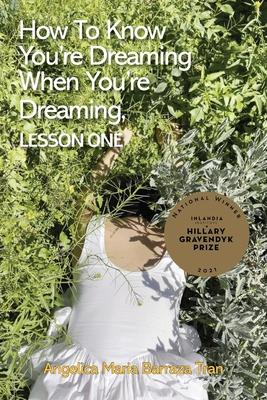Angelica Maria Barraza Tran's debut collection, How to Know You're Dreaming When You're Dreaming, Lesson One, articulates a practice of queer-of-color worldmaking in which the lyric strives to bridge the gaps and silences that separate past and present. In a language that is both speculative and grounded in the material, these poems re-enchant the everyday, revealing the sacred within the rituals of domestic life. They devote themselves, like candles on an altar, to life in all its manifestations: to the ancestors, to lives too soon lost, to the disappeared, and to all those who are to come. In the tradition of Ana Mendieta, these poems construct a rigorous textual body, a body responsive to environment, to violence and erasure, and to collective, intergenerational desires and longings. With this collection, Barraza Tran claims her place within a rich lineage of experimental poetics and Latinx feminism.

How to Know You're Dreaming When You're Dreaming, lesson one
Angelica Maria Barraza Tran's debut collection, How to Know You're Dreaming When You're Dreaming, Lesson One, articulates a practice of queer-of-color worldmaking in which the lyric strives to bridge the gaps and silences that separate past and present. In a language that is both speculative and grounded in the material, these poems re-enchant the everyday, revealing the sacred within the rituals of domestic life. They devote themselves, like candles on an altar, to life in all its manifestations: to the ancestors, to lives too soon lost, to the disappeared, and to all those who are to come. In the tradition of Ana Mendieta, these poems construct a rigorous textual body, a body responsive to environment, to violence and erasure, and to collective, intergenerational desires and longings. With this collection, Barraza Tran claims her place within a rich lineage of experimental poetics and Latinx feminism.